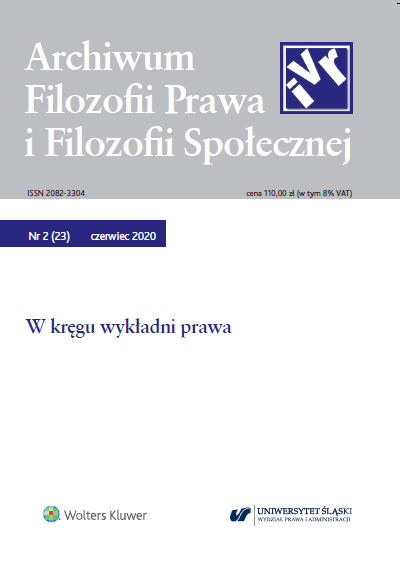Uzasadnianie twierdzeń interpretacyjnych z perspektywy derywacyjnej koncepcji wykładni prawa
Regarding Justification of Interpretive Claims
Author(s): Agnieszka Choduń, Maciej ZielińskiSubject(s): Law, Constitution, Jurisprudence, Philosophy of Law
Published by: Stowarzyszenie Filozofii Prawa i Filozofii Społecznej – Sekcja Polska IVR
Keywords: justification of interpretive claim; legal interpretation; postulate of criticism
Summary/Abstract: The duty to provide justification for claims is the realization of the postulate of criticism in the academia. Decisions regarding legal interpretation (regardless of whether they are formulated in the process of applying the law or outside this process) are made in the form of claims about a binding legal norm with a certain content. Validation of such claims requires their justification, just like in the academia. And in the academia, a claim remains theoretical until someone presents an inter-subjectively verified justification for it. The aim of this article is precisely that: to indicate the necessity to justify interpretive claims (both partial and final) in the process of interpretation. As a starting point in the process of demonstrating the need to formulate such a justification, we choose the derivative conception of legal interpretation, which provides for the duty to justify interpretive claims for methodological reasons (and which is an intrinsic element of the content of legal directives in this conception, at least implicitly). We present and discuss the types of justifications for interpretive claims and their variants (weak and strong). Furthermore, we analyse the difference between justifying ordinary and interpretive claims. Finally, we also identify the consequences of failure to provide such justifications.
Journal: Archiwum Filozofii Prawa i Filozofii Społecznej
- Issue Year: 23/2020
- Issue No: 2
- Page Range: 7-18
- Page Count: 12
- Language: Polish

